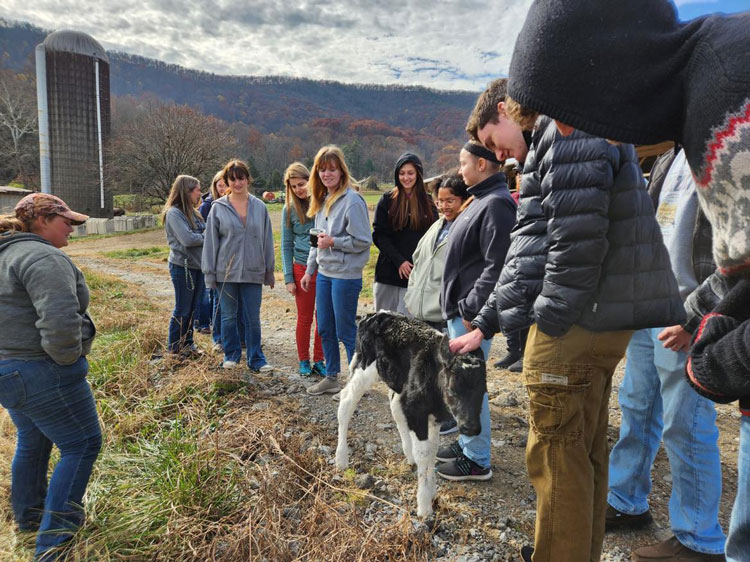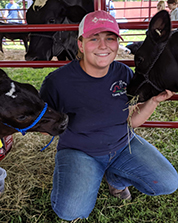
As much as we hate to admit it, we are all well aware of the decline in the dairy industry. Cow numbers remain high, but operations are slowly shutting their doors across the nation due to several factors including income, operating costs, environmental quality, and much more. One factor that we can take the reins on with a little assistance is public perception. Over the years, we have received a bad reputation from animal rights groups and others that do not understand the dairy world. Come along with me as I give examples of ways to successfully connect and build relationships with the community around you.
(A quick disclaimer: I am not a professional speaker, tour guide, or anything similar. I am 27 and started to give tours of my dairy farm at age 11. These tips are merely ideas from my personal experiences.)
Tip 1: Learn your audience.
I have given tours to preschoolers, elementary schools, middle schools, and high schools. I’ve done tours in person and virtually. Not every tour is the same. You have to learn your audience. You can’t go in and use the giant correct terms like “pasteurization” with elementary school kids. You have to learn how to talk to them, how to get them to understand, and how to give them an experience, not just a trip. At the same time, you can’t “dumb something down” for a high schooler as it’s insulting to them. You have to gauge where the conversation is and how to tweak it as needed.
Tip 2: Use synonyms to make it easy to understand.
As farmers, we tend to use the big words that we have always heard. We also use words that no one has ever heard. For example, instead of saying pre- and post-dip, use the terms “soap” and “lotion.” Although “soap” and “lotion” may not be the correct terms, they do describe the overall purpose of pre- and post-dip. Instead of calf hutches, say calf nursery or calf homes. Make the farm like a standard home. The feed bunk is the kitchen. The freestall or pack barn is the living room. The calf hutches are the nursery and so on and so forth.
Tip 3: Be honest.
We know that dairy farmers do not usually have a good reputation as our opponents portray us as monsters and heartless and so on. When asked a question, however, answer it honestly and explain it. Like when asked the typical, “Why do you rip calves away from their moms when they are born?” Instead of saying, “We don’t do that,” explain the reasoning behind the separation. Don’t be afraid to answer the question by saying, “Cows sometimes step on their calves,” or “Cows give too much milk, and it can make the baby get sick if we don’t intervene.” Folks want honest answers. We’ve spent so long sugar-coating things that we forget that the truth means more than the charade.
These are just a few tips when dealing with the public. As an introvert, I tend to avoid this part of the job as much as possible. The reality, though, is that if we want to keep farming, we must build relationships with non-farmers and learn to work together to stay successful. Y’all stay safe out there!

The author is a sixth-generation farmer and fifth-generation dairy producer in southwest Virginia, where she and her family own and operate a 145-head Holstein dairy. Courtney is involved in agriculture organizations throughout her community and is a graduate of Virginia Tech.





